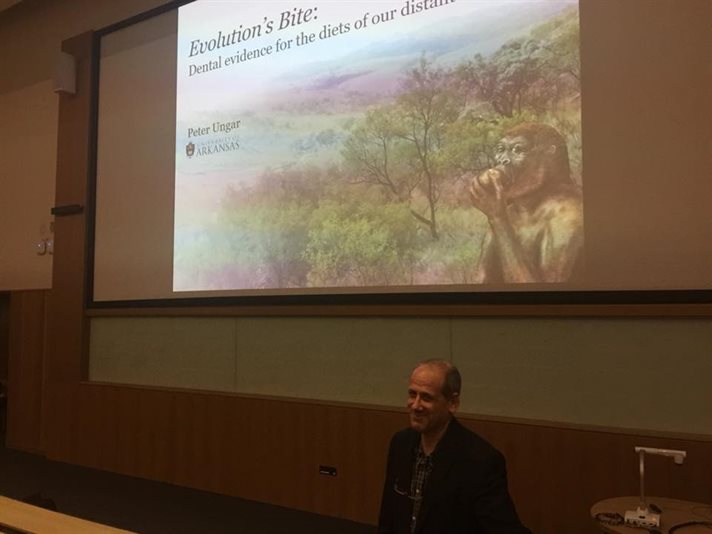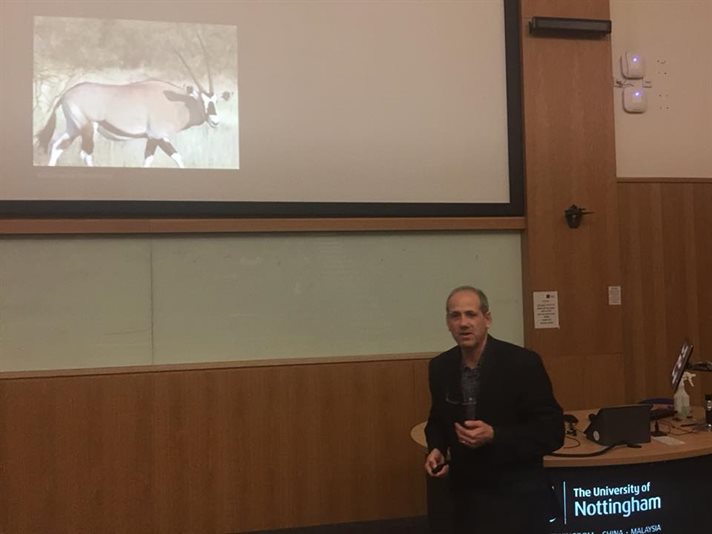Professor Peter Ungar gave a great talk on “Evolution’s Bite: Dental evidence for the diets of our distant ancestors”, 20th March 2018 at University of Nottingham
Abstract:
This talk will present fossil evidence for the evolution of human diet, focusing on teeth as tools designed by nature to accomplish food fracture. There are two basic categories of evidence we consider: adaptive lines (e.g., tooth size, shape and structure), and “foodprints”, or traces of actual feeding behaviors (e.g., isotopic evidence and microwear). Adaptive evidence and foodprints teach us, respectively, something about what our ancestors were capable of eating and what specific individuals in the past ate on a daily basis. Combining the two lines of evidence provides the clearest picture to date of food choice in the past, and how this relates to our evolution. Specific examples will be offered that apply principles of engineering to the study of our fossil forebears.
Bio:
Peter Ungar serves as Distinguished Professor of Anthropology and Director the Environmental Dynamics Program at the University of Arkansas. He received his PhD in Anthropological Sciences from Stony Brook University and taught Gross Anatomy in the medical schools at Johns Hopkins and Duke before joining the University of Arkansas faculty. He is also an Honorary Professorial Research Fellow of the Evolutionary Studies Institute at the University of the Witwatersrand in Johannesburg, South Africa.
Peter is known primarily for his work on the role of diet in human evolution. He has spent thousands of hours observing wild apes and other primates in the forests of Latin America and Southeast Asia, studied fossils from Tyrannosaurus to Neandertals, and developed new techniques for using surface analysis technologies to tease information about evolution and diet from tooth shape and patterns of use wear.
Peter has written or coauthored more than 175 scientific works on ecology and evolution for books and journals including Science, Nature, Proceedings of the National Academy of Sciences, and Philosophical Transactions of the Royal Society. These have focused on teeth, food choices and feeding in living primates, and the role of diet in the evolution of human ancestors and other fossil species. He has also edited or co-edited edited three volumes focusing on the evolution of human diet, and his academic book, Mammal Teeth: Origin, Evolution, and Diversity (Johns Hopkins University Press), won the PROSE Award from the Association of American Publishers for best book in the biological sciences. His recent popular science titles, Teeth: A Very Short Introduction and Evolution’s Bite are available on bookstore shelves and online.
Peter’s work has been featured in documentaries on the Discovery Channel, the Science Channel, BBC Television and others. He has given dozens of invited talks and keynote addresses at venues around the world, including the Royal Society in London, the Smithsonian Institution in Washington, DC., and the American Museum of Natural History in New York.

